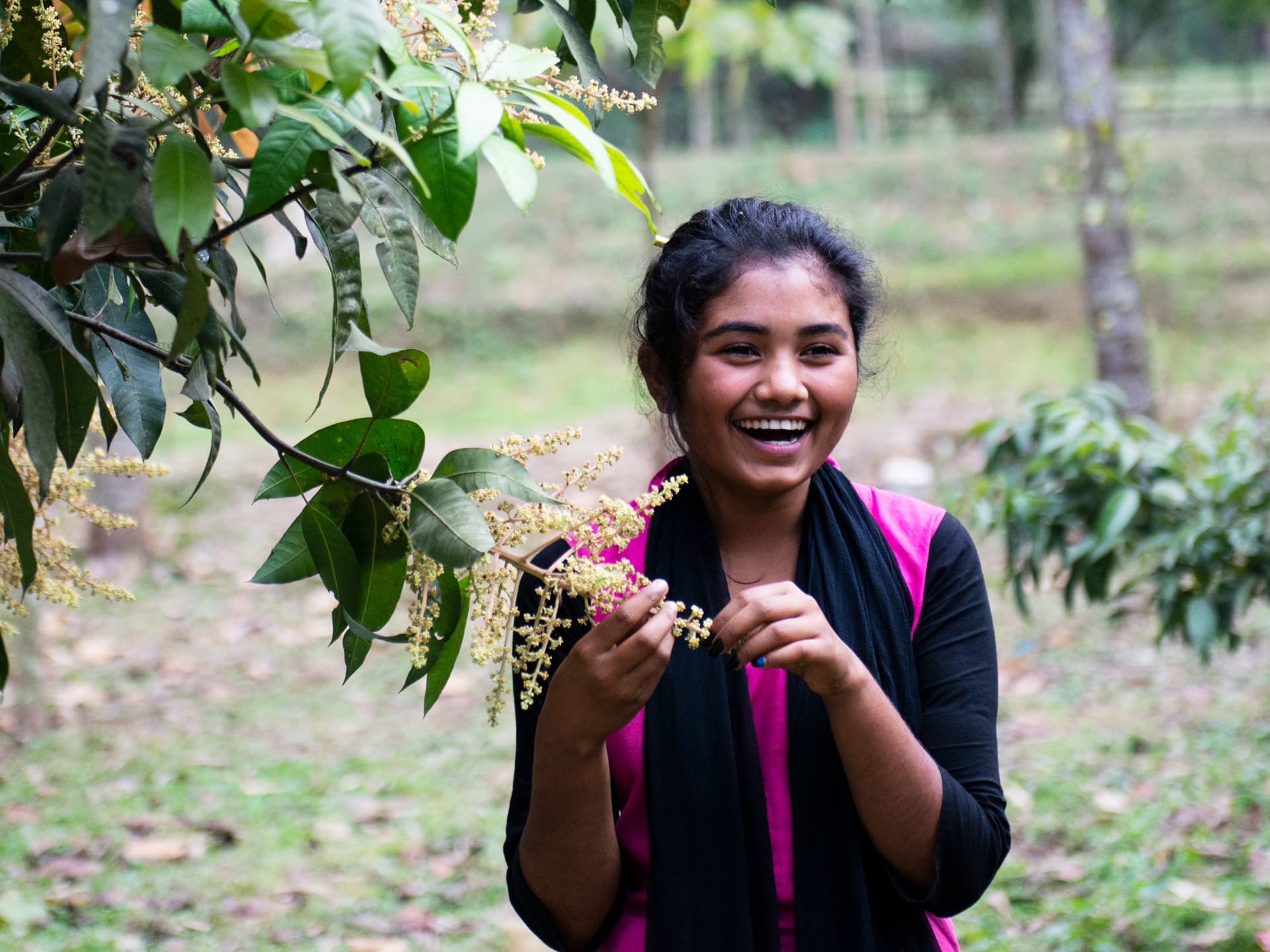
Building equality with a bicycle
Can you build gender equality with a bicycle? Diakonia’s cycling project in Bangladesh has proved it’s possible. Tori is one of the girls who has learned to ride a bike. Now she is a role model for younger girls.
Her name is Sultana, but everyone calls her Tori. In many ways, she is quite an ordinary teenager – self-confident but shy, giggly but serious. She lives in a little house made of corrugated iron with her grandmother and two younger siblings. Tori’s uncle, his wife and their children – Tori’s cousins – live just around the corner. Her parents live and work in Dhaka because there aren’t many jobs in their little village. And although the village and the capital are only 100 km apart, it takes many hours to travel between them on the bumpy roads full of potholes. They can’t see each other very often, and Tori says that she misses her parents a lot.
But her body language changes when we start talking about cycling. Her eyes light up and she bubbles with laughter as she describes what Diakonia’s cycling project has given her.
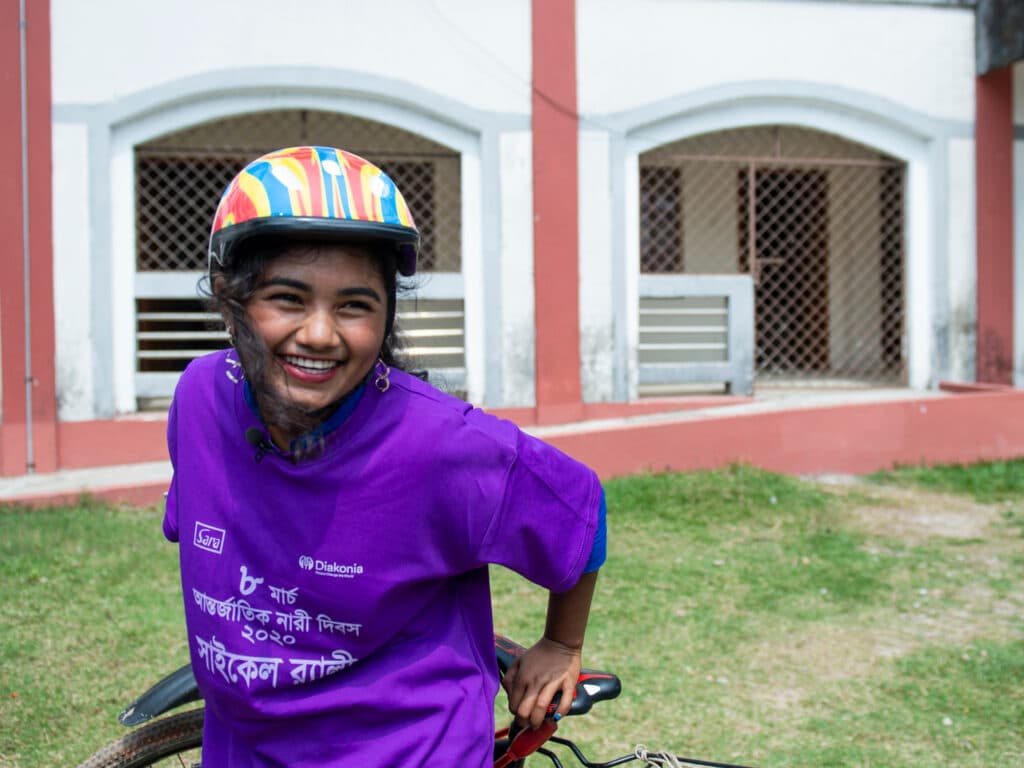
“The first time I cycled by myself… what a feeling. I whizzed past all the people on the roads and everyone looked at me,” says Tori, waving her arms in the air.
One in five girls are married off before their 15th birthday
We are sitting under a tree in the dusty schoolyard outside Tori’s school. It’s a warm day, and the air is humid. Tori laughs and speaks rapidly in Bengali. The interpreter only just manages to keep up as Tori tells us about her plans for the future.
“I want to be a journalist! I like talking to people and listening to other people telling their stories. I would like to travel to other countries and learn about other people.
To some ears this might sound perfectly ordinary. Planning for your future, getting an education, finding a job. But for a teenage girl in Bangladesh, it’s not exactly a given. One in five girls are married off before they reach the age of 15. And then domestic tasks, the home and the family become the top priority instead of education and a career.
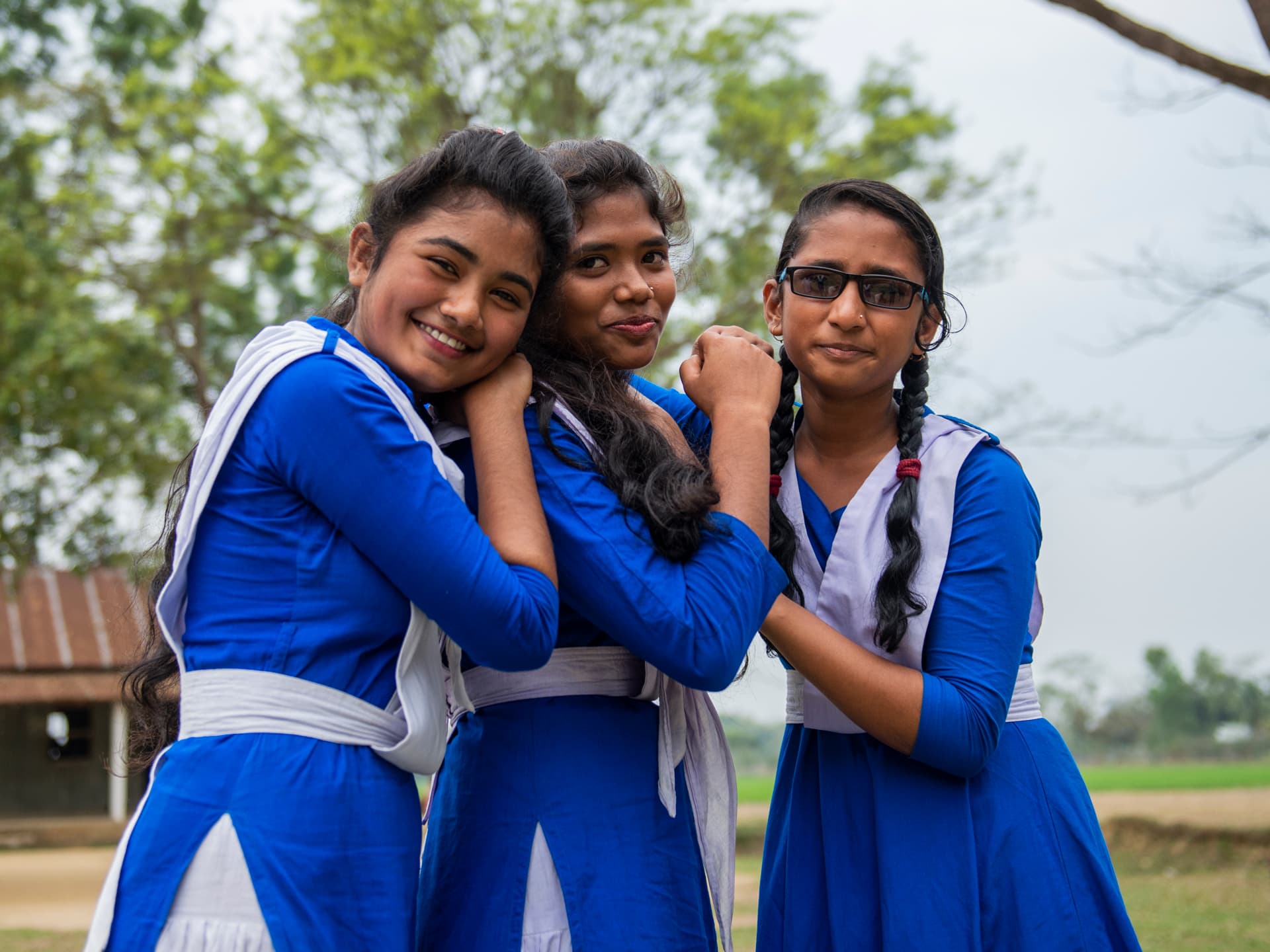
Tori knows what she wants. She nods towards our photographer Gustav and his big camera.
“I’d like to try that out. When I become a journalist, I’ll need to know how to take pictures.”
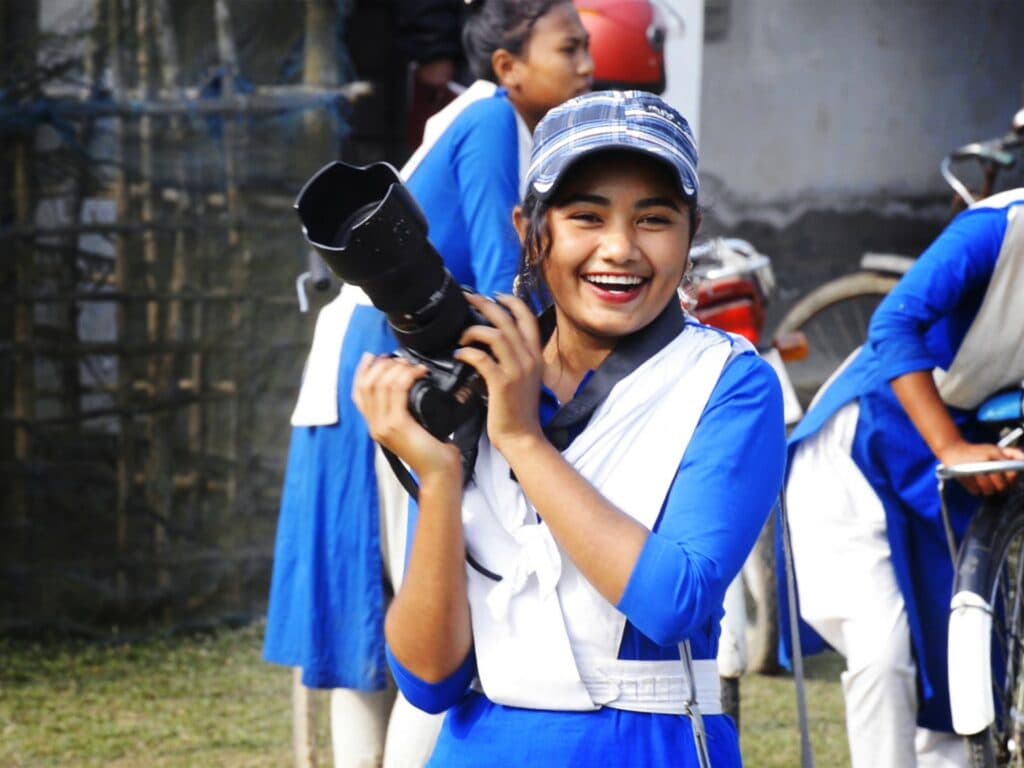
Gustav hands the camera over to Tori. She takes it carefully. It’s heavy, almost too heavy. But Tori is strong. She gets a quick lesson in the camera’s functions and what to do to take a photo. Then she turns the camera towards her friends who are standing nearby to see what’s going on. Click, click, click.
“This feels great! It’s the first time I’ve held a camera!” says Tori laughing loudly.
The camera clicks and clicks, and when we go through the photos afterwards, we see everything from posing teenage boys to flowering trees. And the sky, lots of pictures of the blue sky.
Tori reluctantly hands the camera back to Gustav. I find myself hoping it won’t be too long until the next time Tori gets to hold a camera.
It’s clear that the cycling project is so much more than a cycling school for girls. It’s a chance to break strict norms, it means greater awareness of human rights and, perhaps most importantly of all, it gives these teenage girls self-confidence.
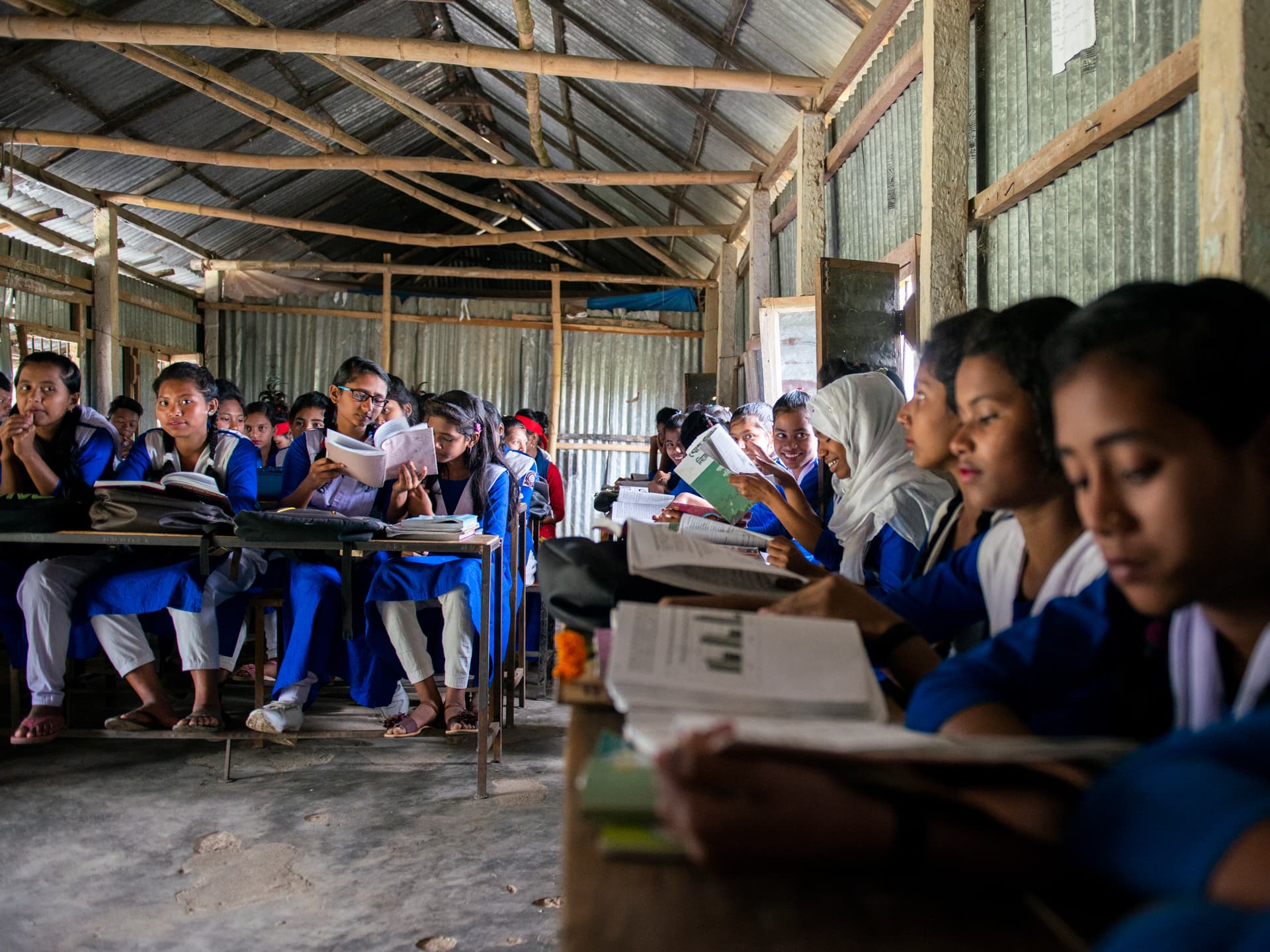
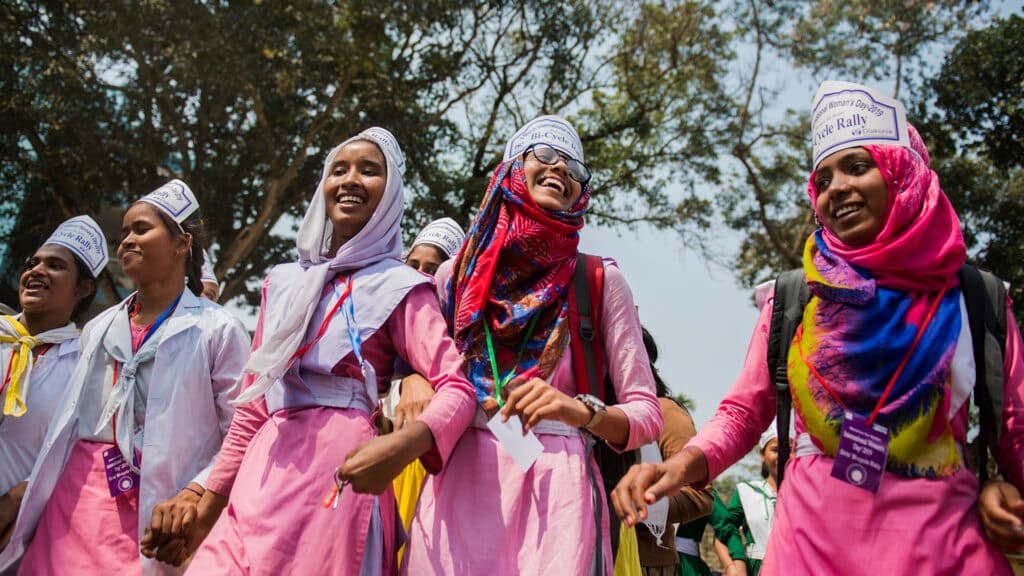
Diakonia in Asia
In Asia, Diakonia cooperates with partner organizations in Bangladesh, Cambodia, Sri Lanka and Thailand. The common goal for our work is to fight against poverty, strengthen gender equality and be a part of processes where the most vulnerable and exposed people have the opportunity to conquer a just and dignified life.